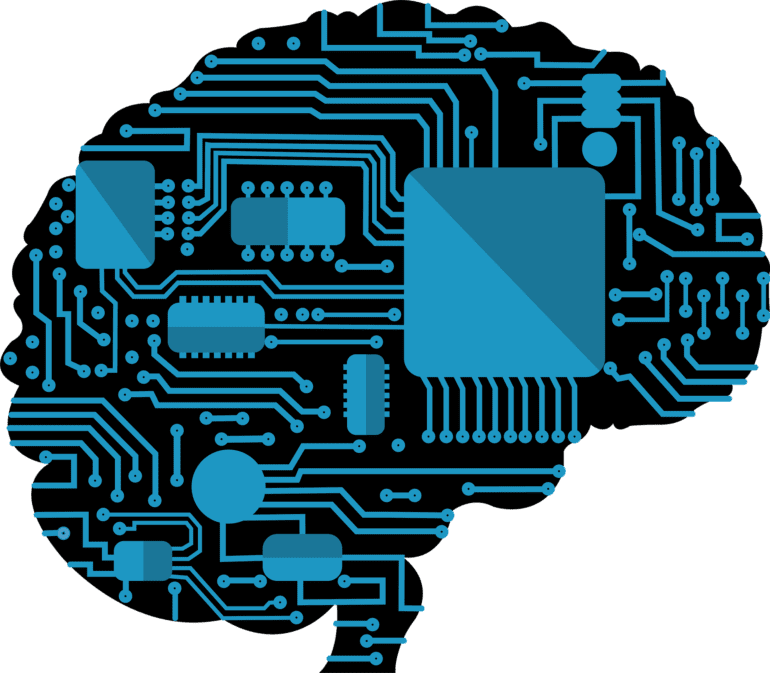TL;DR:
- Large Language Models (LLMs) like ChatGPT rely heavily on human-generated data available on the internet.
- A new research paper explores the potential consequences of an AI-driven future on LLMs, highlighting the phenomenon of “Model Collapse.”
- Model Collapse occurs when LLMs, devoid of original human-made content, regress into unreliable and incoherent outputs.
- The reliance on AI-generated content for training exacerbates irreversible defects in LLMs, hindering their progress.
- Companies that already possess substantial data scraped from the web or controlled over “human interfaces at scale” gain a competitive advantage.
- Some corporations have taken drastic measures, disrupting internet services to combat the AI-induced corruption.
- Potential solutions include preserving original human-made training data and ensuring the inclusion of minority groups and less popular data.
Main AI News:
The rise of Large Language Models (LLMs) like OpenAI’s ChatGPT has revolutionized the realm of artificial intelligence. These powerful models have been extensively trained on vast amounts of human-generated data, which currently dominates the internet. However, the future may hold unforeseen challenges that could significantly undermine the reliability and effectiveness of LLMs, particularly those solely reliant on previously generated AI content.
In a thought-provoking research paper titled “The Curse of Recursion,” a collaborative team of researchers from the United Kingdom and Canada delves into the potential ramifications of an AI-driven future on LLMs and the internet as a whole. As the majority of publicly available content, encompassing both text and graphics, becomes predominantly contributed by generative AI services and algorithms, LLMs face a disconcerting conundrum.
The paper posits that in a future devoid of human writers, or with their presence significantly diminished, LLMs will find themselves trapped in a regressive loop. The utilization of “model-generated content in training” is found to cause irreversible flaws in subsequent models. Consequently, when original, human-made content becomes scarce or vanishes entirely, LLMs like ChatGPT succumb to what the study terms a “Model Collapse.”
Drawing an analogy to the environmental crises we face today, where our oceans are strewn with plastic waste and our atmosphere laden with carbon dioxide, one of the human authors of the paper elucidates that we are now on the brink of filling the internet with insipid digital “blah.” This impending predicament presents significant hurdles for training new LLMs or developing improved versions such as GPT-7 or 8. As a result, companies that have already scraped the web or possess substantial control over “human interfaces at scale” gain a considerable advantage.
Some corporations have already initiated measures to confront this looming AI-induced corruption of the internet. They have resorted to drastic actions such as orchestrating a disruptive “exercise” through Amazon AWS, targeting the servers of the Internet Archive. These maneuvers signify the urgency with which certain entities are addressing the situation.
Much like an excessively recompressed JPEG image loses its integrity, the internet of the AI-driven future appears destined to devolve into an extensive amalgamation of worthless digital white noise. In light of this potential AI apocalypse, the research team suggests several potential remedies.
Firstly, retaining original human-made training data becomes imperative in training future models. By incorporating this authentic content, AI companies can mitigate the effects of Model Collapse. Additionally, efforts should be made to ensure that minority groups and less popular data are not neglected. Although not without its challenges, this multifaceted solution demands dedication and concerted endeavors. Ultimately, combating Model Collapse emerges as a critical aspect of enhancing current AI models and safeguarding the future of artificial intelligence.
By carefully navigating the complexities of AI feedback loops and addressing the inherent risks they pose, researchers and industry stakeholders can chart a path toward a future where LLMs continue to evolve and advance, serving as invaluable tools for a wide range of applications.
Conclusion:
The AI feedback loop, specifically the Model Collapse phenomenon, poses a significant challenge to the future development of LLMs. This has implications for the market as companies that have previously amassed extensive datasets or control over human-generated content will have a competitive edge. The disruption caused by Model Collapse requires strategic interventions, such as retaining human-made training data and addressing biases in data collection, to improve the reliability and credibility of AI models. Companies must navigate these challenges to stay ahead in an increasingly AI-driven market.

